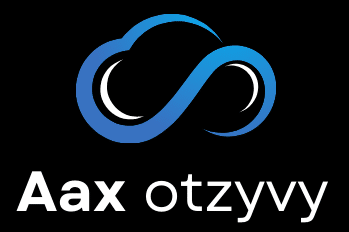
What are the key considerations for developing a secure AI-powered loan approval system?
Artificial Intelligence (AI) has revolutionized many sectors, especially the financial services industry. One of the most profound impacts is seen in the loan approval process. Utilizing AI for loan approval can significantly streamline lending decisions, enhance risk assessment, and improve fraud detection. However, developing a secure AI-powered loan approval system requires careful consideration of various factors to ensure efficiency, security, and ethical soundness.
Leveraging Data for Robust AI Algorithms
AI systems depend heavily on data. For a secure AI-powered loan approval system, the quality and variety of data sources are crucial. Financial institutions collect vast amounts of data from customer interactions, credit histories, and market trends. Learning models require this data to identify patterns and make accurate predictions.
Avez-vous vu cela : Elevate your writing strategy using an intelligent ai blog generator
Importance of Accurate Data
Accurate data fuels the development of reliable credit scoring and risk assessment models. Financial institutions must ensure the data they use is up-to-date, complete, and accurate to avoid erroneous lending decisions. This involves stringent data verification processes and continuous monitoring.
Diverse Data Sources
Diversity in data sources enriches AI models, making them more robust. Customer demographics, transaction histories, social media activity, and even behavioral data can provide deeper insights. By integrating these data sources, lenders can create comprehensive profiles, enhancing the precision of their lending algorithms.
Dans le meme genre : Transform your content with a smart ai blog writer
Data Security and Privacy
The security of customer data is paramount. Financial institutions must implement strong encryption and secure data storage to protect sensitive information. Compliance with regulations like GDPR and CCPA is non-negotiable to avoid legal repercussions and maintain customer trust. Additionally, anonymizing personal data can further protect customer privacy while still allowing effective model training.
Integrating Machine Learning for Enhanced Decision Making
Machine learning (ML) algorithms are at the heart of AI-powered loan approval systems. These algorithms analyze vast datasets to predict creditworthiness, assess risk, and automate decision-making processes.
Building Predictive Models
Predictive models are essential for evaluating loan applications. These models use historical data to predict a customer's likelihood of repaying a loan. By continuously learning from new data, these models improve over time, becoming more accurate and reliable.
Automated Decision Systems
Automated decision systems use ML algorithms to make quick and accurate lending decisions. These systems can process large volumes of applications swiftly, reducing the time taken for loan approvals. This not only enhances operational efficiency but also improves customer experience by providing quicker responses.
Ethical Considerations
While ML offers many benefits, ethical considerations must be addressed. Bias in data and algorithms can lead to unfair lending decisions. Financial institutions must proactively identify and mitigate biases, ensuring fair treatment of all applicants. Transparency in how decisions are made can also build customer trust and comply with regulatory requirements.
Enhancing Security in AI-powered Systems
Security is a critical component of AI-powered loan approval systems. With cyber threats on the rise, financial institutions must prioritize security to protect sensitive data and maintain system integrity.
Implementing Advanced Security Measures
Advanced security measures such as multi-factor authentication, encryption, and real-time monitoring are vital. These measures protect against unauthorized access and data breaches, ensuring the integrity of the loan approval process. Additionally, regular security audits can help identify vulnerabilities and enhance system defenses.
Fraud Detection and Prevention
AI can significantly improve fraud detection capabilities. By analyzing patterns and anomalies in transaction data, AI systems can identify potential fraud attempts quickly. This proactive approach helps prevent fraudulent activities and protects both the financial institution and its customers.
Regulatory Compliance
Compliance with financial regulations is essential for security and operational legitimacy. Financial institutions must stay abreast of evolving regulatory requirements and ensure their AI systems comply with these standards. Regularly updating security protocols and conducting compliance checks can mitigate potential legal risks and maintain customer trust.
Streamlining the Loan Approval Process
Efficiency in the loan approval process is crucial for customer satisfaction and operational effectiveness. AI-powered systems can streamline this process, reducing time and effort for both lenders and applicants.
Improving Application Efficiency
Automated systems can handle high volumes of loan applications efficiently. By utilizing AI, lenders can quickly process applications, conduct credit checks, and make informed lending decisions. This reduces the workload on human staff and speeds up the approval process, benefitting customers with quicker response times.
Enhancing Customer Experience
A streamlined loan approval process enhances the customer experience. With AI, customers receive faster decisions and more personalized service. Automated systems can provide real-time updates on application status, improving transparency and customer satisfaction.
Decision Management Systems
Decision management systems use AI to optimize the decision-making process. These systems analyze data and recommend the best course of action, helping lenders make informed decisions. By integrating decision management systems, financial institutions can enhance their loan approval process, making it more efficient and effective.
Ethical and Responsible Use of AI in Lending
The use of AI in lending raises ethical and responsible use considerations. Financial institutions must balance efficiency gains with ethical responsibilities to ensure fair and transparent lending practices.
Addressing Bias and Fairness
Bias in AI systems can lead to discriminatory lending practices. Financial institutions must address these biases by ensuring diverse and representative data, conducting regular bias audits, and implementing corrective measures. Fair and unbiased lending practices are essential for maintaining customer trust and regulatory compliance.
Transparency and Accountability
Transparency in AI decisions is crucial. Financial institutions must communicate clearly how decisions are made and provide explanations for loan denials. This transparency builds trust and helps customers understand the factors influencing their loan approval.
Ethical AI Frameworks
Adopting ethical AI frameworks can guide financial institutions in the responsible use of AI. These frameworks provide guidelines on fairness, accountability, and transparency, ensuring that AI systems are used ethically and responsibly. By adhering to these frameworks, financial institutions can enhance their reputation and build customer trust.
Developing a secure AI-powered loan approval system involves careful consideration of data quality, machine learning algorithms, security measures, process efficiency, and ethical responsibilities. By leveraging accurate and diverse data sources, financial institutions can create robust predictive models for informed decision-making. Implementing advanced security measures and ethical AI frameworks ensures the protection of sensitive data and fair lending practices. Streamlining the loan approval process enhances customer experience and operational efficiency. Ultimately, a secure and responsible AI-powered loan approval system can revolutionize the lending industry, offering numerous benefits for both lenders and customers.
